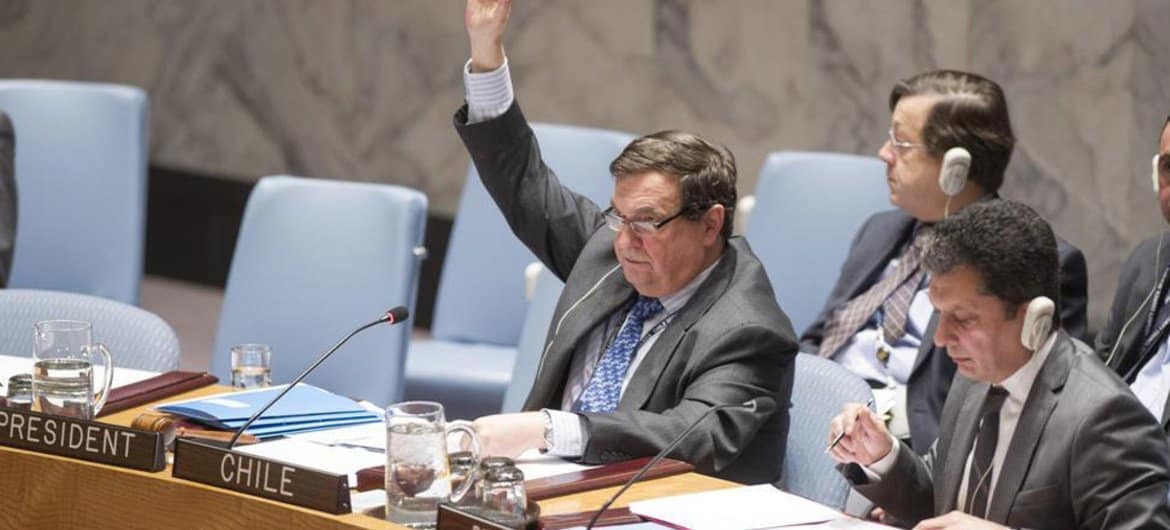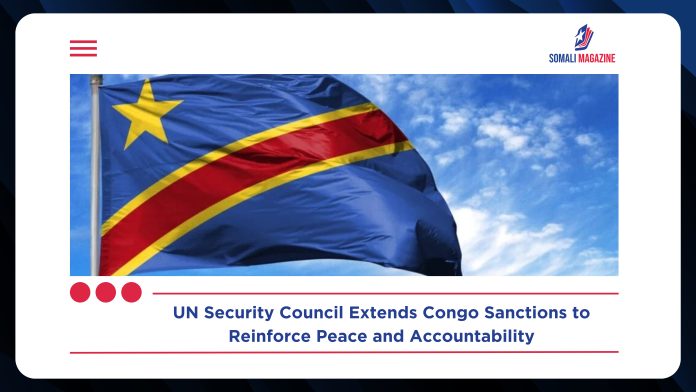Facebook Twitter (X) Instagram Somali Magazine - People's Magazine
UN Security Council renews Congo sanctions regime, extending key measures aimed at curbing violence and instability in the Democratic Republic of the Congo (DRC) for another year. In a unanimous vote on June 30, the 15-member council adopted Resolution 2783, which prolongs the sanctions until July 1, 2026, and extends the mandate of the Group of Experts monitoring the situation until August 1, 2026.
The renewed sanctions include an arms embargo targeting non-state armed groups, as well as travel bans and asset freezes on individuals and entities designated by the DRC Sanctions Committee. These measures are designed to disrupt the operations of militias and rebel factions that have plagued eastern Congo for decades, contributing to one of the world’s most protracted humanitarian crises.
The resolution also reaffirms exemptions for the Congolese government’s armed and security forces, allowing them to receive military equipment and assistance without being subject to the embargo or notification procedures. This clause, first introduced in May 2024, is intended to strengthen the DRC’s capacity to combat insurgent groups while maintaining oversight through the UN framework.
The Group of Experts, tasked with monitoring compliance and investigating violations, has been instructed to submit a midterm report by December 30, 2025, and a final report by June 15, 2026. Monthly updates to the Sanctions Committee will also be required, except during the months when the major reports are due.
France, which drafted the resolution, emphasized the importance of maintaining pressure on destabilizing actors in the region. Speaking after the vote, the French representative noted that the sanctions regime and the Group of Experts are “central tools in combating violence and destabilization in the eastern part of the country.”

The renewal comes just days after a draft peace agreement was signed between the foreign ministers of the DRC and Rwanda in Washington, under the auspices of the United States. That deal, aimed at ending hostilities linked to the M23 rebel group, was welcomed by the Security Council as a sign of progress in the Great Lakes region.
However, the situation on the ground remains volatile. Armed groups continue to operate with impunity in North Kivu, South Kivu, and Ituri provinces, displacing millions and committing widespread human rights abuses. The UN has repeatedly warned that without sustained international engagement, the cycle of violence could escalate further.
The resolution also recalled the UN Secretary-General’s commitment to ensuring justice for the 2017 killing of two members of the Group of Experts and four Congolese nationals who were accompanying them. The Council stressed the importance of continued support for the DRC’s national investigation into the incident.
Guyana, which held the rotating presidency of the Council in June, praised the collaborative spirit that led to the resolution’s adoption. “This decision reflects our shared commitment to peace, accountability, and the protection of civilians in the DRC,” said the Guyanese representative.
As the DRC prepares for its next electoral cycle and continues to navigate complex regional dynamics, the extension of the sanctions regime signals the international community’s intent to remain actively engaged. Whether these measures will translate into lasting peace and stability remains to be seen, but for now, the Security Council has reaffirmed its role as a key player in Congo’s path forward.

